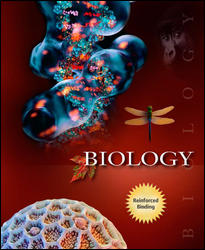 
Biology, Eighth Edition (Raven)Chapter 23:
Systematics and the Phylogenetic RevolutionLearning OutcomesChapter 23
- Describe the science of taxonomy and its importance to classification.
- Understand the necessity for and the technicalities of the binomial nomenclature system.
- Describe taxonomic hierarchy, the three domain system and the six-kingdom classification system.
- Be able to describe the biological species concept.
- Understand the differences between traditional classification; systematics and phylogenies; cladistics and cladograms.
- Explain the general evolution of the two prokaryotic kingdoms (archaebacteria and bacteria) as well as the four eukaryotic kingdoms (protista, fungi, plantae, and animalia).
- Describe the endosymbiotic theory and origin of eukaryotic mitochondria and chloroplast organelles.
- Understand the importance of compartmentalization, multicellularity and sexuality in the scheme of eukaryotic specialization.
- Explain the general characteristics of viruses and show why they are not classified into any of the established domains and/or kingdoms.
- Understand the present day hierarchical scheme is subjective and subject to changes with ongoing evidence.
 |  |
|





